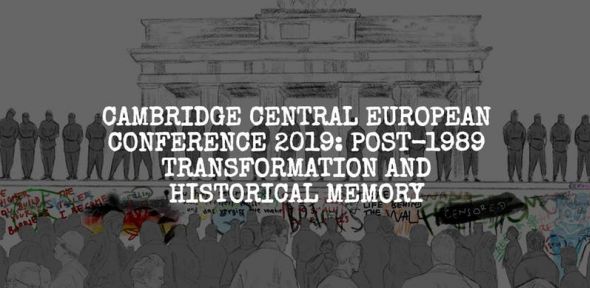
Saturday, 2 November 2019, 9am - 6pm
Jesus College, University of Cambridge
The year 2019 represents the 30th anniversary of the 1989 revolutions, which reshaped both the international and domestic landscape in Central and Eastern Europe, leading to a large-scale political, economic and social transformation. The 30th anniversary provides a good opportunity to look back at these processes.
The Cambridge Central European Conference 2019: Post-1989 Transformation and Historical Memory focused on the historical milestone of 1989, and assessed from a multi-disciplinary perspective the experiences of five countries in Central Europe: Germany and the four countries of the Visegrad group – the Czech Republic, Hungary, Poland, and Slovakia. While each of them faced different challenges - such as, for instance, German reunification and the Czechoslovak “Velvet Divorce” - they are all member states of the European Union with new challenges and opportunities in the offing. To offer a variety of disciplinary and case study perspectives, the conference aimed to bring together researchers from academic institutes from the region, as well as actors who were involved in the transformation processes first-hand.
The event was supported by the DAAD Hub Cambridge; the Cambridge Committee for Russian and East European Studies (CamCREES); Cambridge Polish Studies; Jesus College (University of Cambridge); and the Embassy of Slovakia to the United Kingdom.




